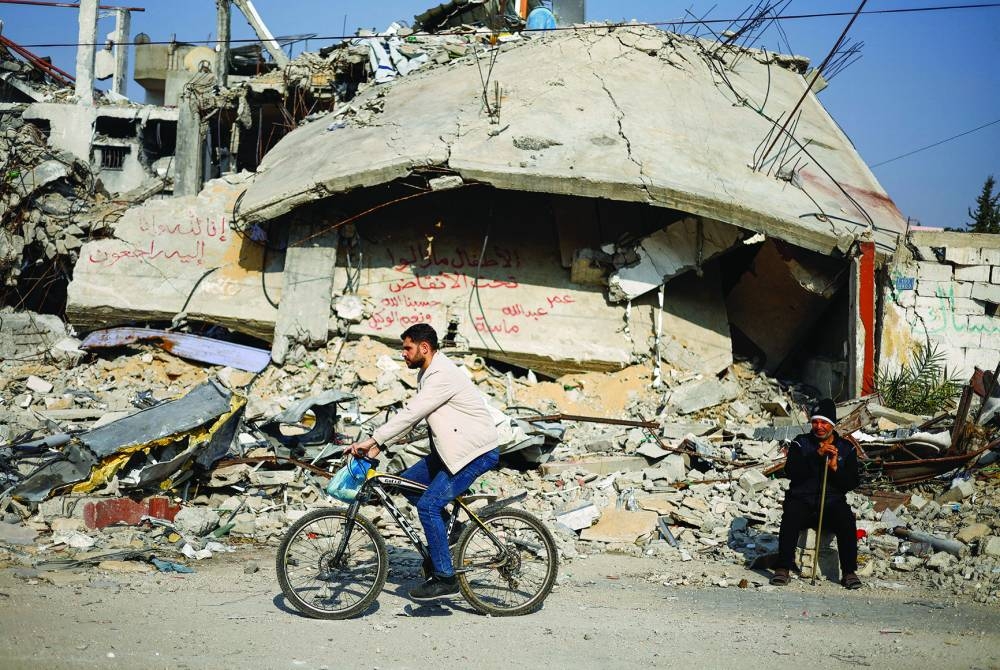Daubed in red paint on a fallen wall, the names Omar, Abdullah and Massa mark the spot where the three children were buried alive by an Israeli air strike in the Gaza Strip in November, their relatives say.
Mohamed Abu Aweidah, an uncle of the missing children, said he visits the rubble of the home in Rafah every day in the “hope one can pull out their bodies, or take a last look at their remains”.
“We pray to God that we will be able to pull them out and see them,” said Abu Aweidah. They were among 16 children killed in the strike that day, one of them his 18-month-old son, whose body was recovered, he said.
The three children are among thousands of Palestinians whom authorities in Hamas-run Gaza say remain missing after 100 days of war, indicating the casualty toll could be well above the nearly 24,000 deaths recorded by health authorities in Gaza.
The war began in the first week of October after Hamas fighters stormed Israel.
Health authorities in Gaza have estimated that about 40% of those confirmed killed are aged under 18.
Abu Aweidah said his son had been “martyred in his sleep” after he’d put him to bed, asking what the infant had done to deserve such a fate.
The ground was covered in chunks of masonry and twisted metal as he visited with his young daughter.
“We have nothing left, the house is all gone, that was my father’s labour, he spent 40-50 years building it and it vanished in a second, all of it, became a memory, became history, without prior notice,” he said.
Nearly the entire population of Gaza — 2.3mn people — have been forced to flee their homes during the Israeli offensive which has laid waste to the territory. Khaled Abu Aweidah, another relative, said his son Ihab and six grandchildren were among family members killed in the strike. Two of those grandchildren — Abdullah and Massa — were among the three children still missing, he said.
“We long to get those three children out from under the rubble and bury them like human beings,” he said.
Ziad Mansour, a neighbour, recalled how he used to watch from his balcony as the Abu Aweidah children played. “In a blink of an eye, they vanished,” he said. “They come here every day... in hope that they can pull them out and bury them, knowing very well that they are with God.” Mohamed al-Mughair of the Gaza civil defence said residents were calling in to appeal for help to get children out from under the rubble, including from areas in northern Gaza that have been too dangerous to reach due to military operations.
He said rescue workers faced difficulties including the psychological impact of recovering bodies, especially “people who have been under the rubble for more than two months”.
“Moreover, we suffer from the limited resources, especially with the malfunction of the machines and bulldozers.”

Ziad Mansour, a neighbour of the Abu Aweidah family, sits next to writing painted on a wall amid the rubble of the family’s house, which was destroyed in a deadly Israeli strike amid the ongoing conflict, in
Rafah, Gaza Strip. The writing reads: “Children remaining under the
rubble, Omar, Abdullah and Massa”.
